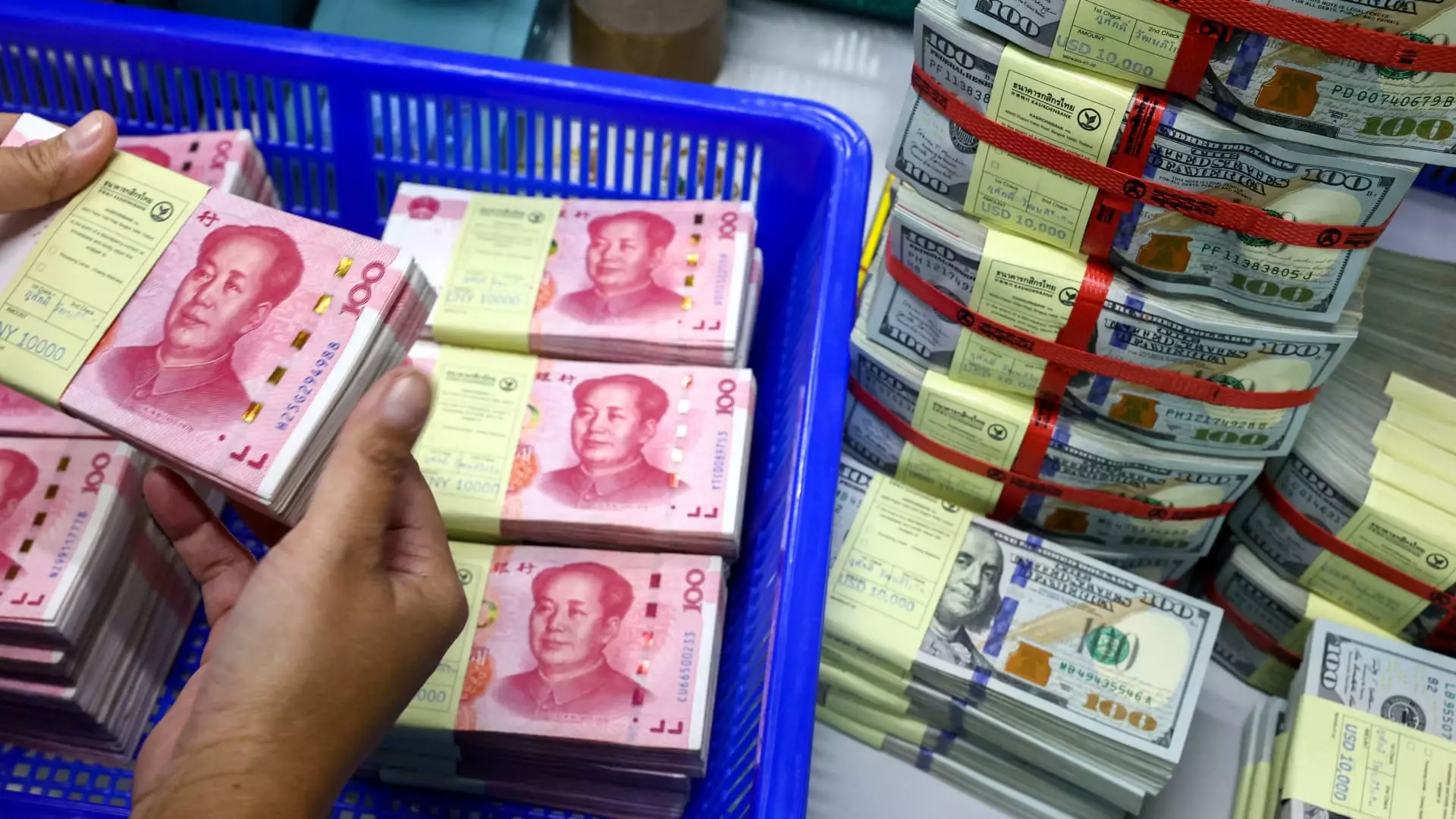In the quest to boost the international usage of China’s currency, the yuan, various challenges and opportunities present themselves. The CEO of Hong Kong Exchanges and Clearing Limited, Bonnie Chan, emphasized the need for more diverse “applications” of the yuan, such as in stocks and bonds. In a world where the U.S. dollar reigns supreme, China aims to carve out a space for the yuan in the international financial market. The recent U.S. sanctions on Russia have intensified the need for alternatives to the greenback, further highlighting the importance of promoting the yuan on a global scale.
Chan highlighted a strategic imperative focused on creating more RMB-denominated security products to showcase the versatility and utility of the yuan to investors worldwide. This move is crucial in shifting the perception of the yuan from just a currency for trade to a legitimate store of wealth. The introduction of the “Dual-Counter” program by HKEX last year marked a significant step towards making the yuan more globally accessible. Additionally, the IMF’s decision to include the yuan in its basket of reserve currencies in 2015 underscored the growing importance of the currency on the international stage.
Despite the efforts to internationalize the yuan, challenges remain. Fred Hu, the founder and CEO of Primavera Capital, cautioned that the process might take longer than anticipated due to structural limitations. China’s capital account restrictions and the relative shallowness of its financial markets compared to the U.S. pose significant impediments to the widespread adoption of the yuan. The requirement for a more sophisticated investor base and a well-developed financial sector are essential for the creation of Chinese yuan-denominated investment products.
The emphasis on “patient investing” at forums like the Lujiazui Financial Forum in Shanghai signals a shift towards long-term investment strategies over short-term speculation. This approach, advocated by top leaders in the financial industry, aims to cultivate stability and resilience in the market. Kenny Lam, CEO of Two Sigma Asia-Pacific, highlighted the importance of market volatility in shaping investor patience and policy stability. Encouraging a culture of patient investing is crucial for the sustainable growth of the financial sector and the broader economy.
The IPO market plays a pivotal role in attracting investors and showcasing the potential of Chinese companies. The regulatory hurdles and increased scrutiny from both Chinese and U.S. authorities have dampened IPO activities in recent years. However, there are signs of resurgence, with Chinese authorities announcing initiatives to support IPOs, especially in Hong Kong. The increased number of new listing applications and the positive market conditions signal a potential revival of the IPO market in China. Jonathan Krane, the founder of KraneShares, pointed out the importance of storytelling and innovation in driving interest in IPOs.
As China continues its efforts to promote the global use of the yuan, overcoming challenges and seizing opportunities will be critical. The maturation of the local financial sector, the cultivation of a patient investor base, and the revitalization of the IPO market are key components of this strategy. While the internationalization of the yuan may encounter hurdles along the way, the long-term vision of establishing the yuan as a prominent global currency is within reach with strategic initiatives and cross-border collaborations.


Leave a Reply